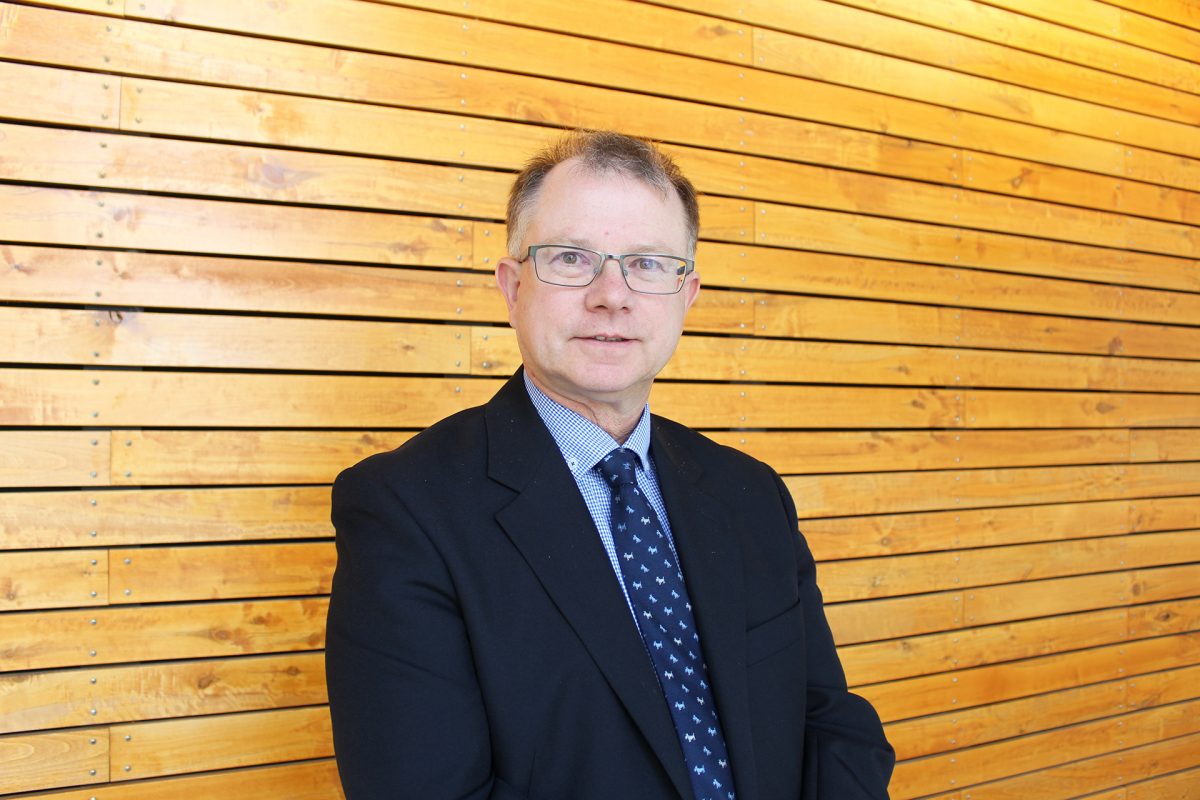
Ron Eros, new director of experiential education at the College of Pharmacy: "My role is to expand the opportunities that are available to students."
College of Pharmacy expands experiential learning, adds new placement sites
On April 30, Ron Eros stepped into the brand new role of director of experiential education at the College of Pharmacy in the Rady Faculty of Health Sciences.
The College of Pharmacy is currently transitioning from a Bachelor of Science (Pharmacy) to a four-year Doctor of Pharmacy (PharmD) degree program, the result of a decision by the Canadian Council for Accreditation of Pharmacy Programs (CCAPP) to cease accrediting B.Sc. (Pharm) programs in Canada by December 31, 2020.
The experiential education components of the new PharmD program will increase exponentially to 1600 hours (40 weeks) from 640 hours in the B.Sc. (Pharmacy) program. Students will spend their entire final year completing 32 weeks of experiential education and are responsible for a research project, another new requirement. It is Eros’s responsibility to oversee the establishment of these new requirements as the director of the new Office of Experiential Education.
“My role is to expand the opportunities that are available to students,” says Eros, “We need to make sure we’re expanding placements in community pharmacies, hospital and primary care sites. It will take some time but the work has already started.”
Eros graduated from the University of Manitoba College of Pharmacy in 1988. His 31 year career has included positions at the Health Sciences Centre and St-Boniface Hospital. Most recently he was regional director for pharmacy at the Winnipeg Regional Health Authority. He says he was attracted to this new role because it was an opportunity to support new pharmacists and students in a growing educational program but still linked him with colleagues from across the province.
Throughout Eros’s career he’s been involved with the College of Pharmacists of Manitoba and the Pharmacy Examining Board of Canada which has made him well-versed in national and provincial issues and activities for pharmacy.
These experiences will come in handy since his office is responsible for a wide range of services, including preceptor education and development, the promotion and recruitment of sites across the province, making connections with other programs across the country and developing and working with sites to make them the best possible training environments for students.
Experiential learning is set to expand significantly within community pharmacies, hospitals, and in different research areas. It is also moving into new territory such as primary health care settings such as community ACCESS centres. There are also plans to expand the number of sites outside of Winnipeg. Students will have the opportunity to do an elective where they will be able to expand on their experiences within hospital pharmacy, community pharmacy, primary care or another area of pharmacy.
“There’s a lot of work that needs to be done. We’re looking to expand the supports in place for the students, the preceptors, the sites and the overall program,” says Eros, “That’s key to the establishment of the Office of Experiential Education. With all of the additional student placements, we need to support our partners out in the community and throughout the province.”
The College has created new positions called experiential educational facilitators, who are clinical pharmacists from community and hospital environments that will be onsite providing support for students, preceptors and sites.
Eros says that pharmacists now have an expanded scope of practice, for example, giving injections such as flu shots, meaning there is an increased need for additional experiential education within different health-care settings.
“With expanded experiential learning, students will be well-prepared to enter the workforce and their skills will be more in line with the needs of the health care system going forward,” he says.
Students currently enrolled in the College of Pharmacy will complete their degrees as planned and graduate with a B.Sc. (Pharm). Students who began their studies in fall 2018 will be among the first graduates from the new Doctor of Pharmacy program. They completed one year of the B.Sc. (Pharm) program, and will now transition to the new program for a further four years of study (graduating in May 2023).






